Tim Buckley - Happy Sad
by Jon Rogers
published: 26 / 6 / 2011
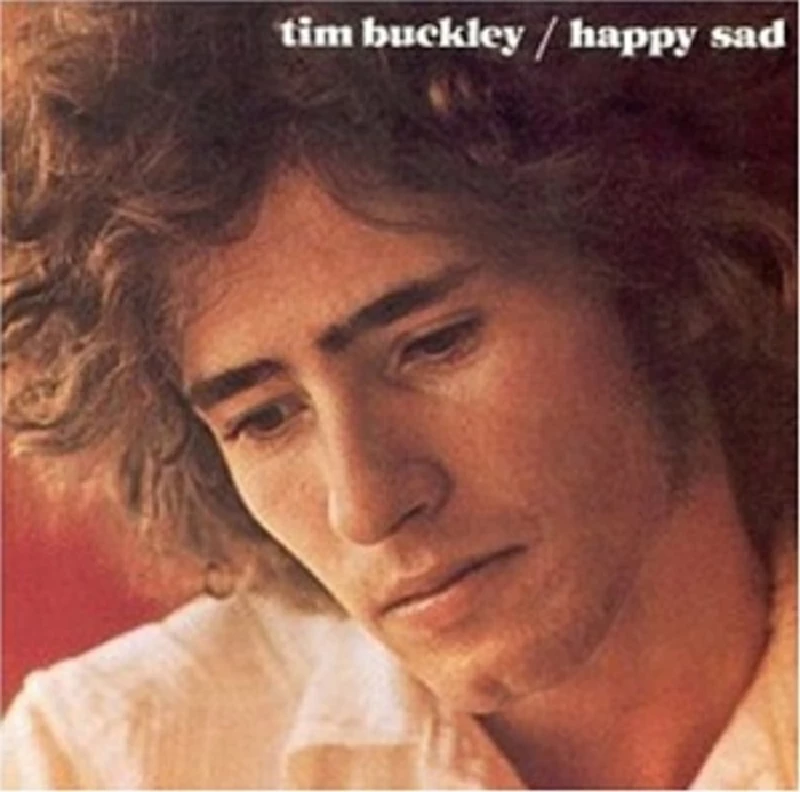
Label:
Select Label
Format: N/A
intro
In our 'Re: View' series, in which our writers look back at albums from the past, Jon Rogers reflects upon the making of troubled Californian singer-songwriter Tim Buckley's 1969 third album, 'Happy Sad'
"About his songs: "My new songs aren't dazzling; it's not 2 minutes and 50 seconds of rock 'em, sock 'em... I guess it's pretty demanding." About his music: "Mess up by body, man, but don't mess up my music." About his direction: "There's going to be a change." Elektra advert for 'Happy Sad', April 1969 The roll call of who's who that came to see the American guitarist and singer Tim Buckley, certainly in the early years, is quite impressive. Beatles guitarist George Harrison and manager Brian Epstein, artist Andy Warhol and Rolling Stones singer Mick Jagger. Legend has it, too, that rising star Janis Joplin once tried to pick Buckley up in a bar and that he was at least an acquaintance of Doors singer Jim Morrison after they bumped into each other at the Whisky-A-Go-Go and both were off their faces on either drink or drugs. For those in the know Timothy Charles Buckley III, who was born on Valentine's Day 1947, was someone to keep an eye on. To the world at large though his first two albums - his eponymous debut and 'Goodbye and Hello' - hadn't made much of an impression. Both albums had received polite, if restrained, praise from the critics but hadn't made much of an impression with the buying public. 'Tim Buckley', released in August 1966, had been recorded in three days, and was pretty much standard folk rock fare in the traditions of the day. Despite the presence of 'names' such as Jack Nitzsche and Van Dyke Parkes on the credits, songs like 'Valentine Melody' and 'Strange Street Affair Under Blue' didn't have much going for them. Buckley, later, didn't have much time for it, dismissing it as being "like Disneyland." 'Goodbye and Hello', released the following year, was more ambitious with the songs having different timings and more experimental structures, as well as the songs having a darker undertow. There was the anti-establishment message of the title track, 'I Never Asked to be Your Mountain' was, effectively, a confessional lyric to his estranged wife, Mary Guibert, and son, the future acclaimed singer Jeff. The album also, as guitarist Lee Underwood described it in Barney Hoskyns' 'Waiting for the Sun: The Story of the Los Angeles Music Scene', dropped "the Bambi-eyed little boy poet prattling about paper hearts and Valentines." While 'Happy Sad' would also draw on those aspects of experimentation and introspection, it would be a much more radical offering. One key change in this more avant-garde direction was that Buckley's lyricist Larry Beckett had been conscripted into the army in autumn 1968 and so Buckley was free to develop his own style. On 'Goodbye and Hello' Buckley had composed half of the album's songs, with the rest being credited to Beckett, but now Buckley, who was still only 20 at the time of his second album, was maturing and developing his own voice and had outgrown the need for a lyricist. For a BBC radio performance on DJ John Peel's show, after going through the motions on 'Morning Glory' the band launched into an 11-minute medley of 'Hallucinations' and the, as yet, unrecorded 'Troubadour', complete with shifting time signatures and mood changes. Another aspect was his growing interest in jazz and he started paying much more attention to the jazz greats like Charles Mingus, Thelonious Monk, Roland Kirk, Ornette Coleman and, in particular, Miles Davis. The style of jazz was very different from Buckley's own folk rock roots and that influence would come to alienate many of his original fans. By the time Buckley came to perform at the Queen Elizabeth Hall in London on 7 October 1968, he considered both of his first two albums just a distant memory, with him only performing five songs from 'Goodbye and Hello' and completely ignoring his debut for more recent material. While his song writing talent may have been starting to pick up his own personal life, especially his relationships with women, was becoming a disaster area. His early marriage to Mary Guibert, who had born him a son, had effectively failed before it had much of a chance to even start. And his new, long term relationship with Jane Goldstein was also hitting the rocks. Mainly due to Buckley's inability to remain faithful. On the face of it Goldstein and Buckley were in domestic bliss, living in the remote community of Malibu at 19550 Pacific Coast Highway in a single-floor house which had a private beach. There Buckley would love to just listen to the waves crashing on the rocks. But if Goldstein wasn't around, Buckley easily caught the eye of just about any woman passing with his looks. In David Browne's 'Dream Brother', biography of both Tim and Jeff Buckley, tour manager Carter Collins states that Buckley had "jillions of ladies on the road. It was just allowed back then." Goldstein wasn't blind to this either, telling Browne that he often joked with her that he had "a Rosie in every port". But the joke wasn't funny when she discovered he had given her gonorrhoea. While Buckley was fully enjoying the liberal sexual mores of the late 1960s, Goldstein had more traditional views and little tolerance for Buckley's dabbling in partner swapping and free love. Inevitably this created a large amount of friction between the two. To compound matters whenever Buckley was confronted with his behaviour he would always feign innocence. In his mind he was always the innocent victim of another woman's wiles. It was during this turbulent time that Buckley made an ill-fated attempt at recording a follow-up to 'Goodbye and Hello'. Despite Buckley being seen as very much part of the West Coast scene, and in particular with the enclave of musicians based in and around Laurel Canyon, in March 1968 the band made the rather unusual step of booking recording time at Mayfair Studio in Manhattan, which according to Underwood, was "a cold sleazy room built of concrete." They recorded several new songs but "nothing felt quite right, and none of us knew why. We decided the New York scene wasn't for us." Only the starkly beautiful 'Sing a Song for You' was even remotely finished. Further sessions were done at TTG Studios in Hollywood but at best only sketches of songs were ever put down. Although the lyricist Larry Beckett had been conscripted tensions between him and Buckley had been growing beforehand. In part, this was down to Buckley's own development and confidence. While Goldstein states Buckley was never particular articulate when it came to speaking about his emotions she says he needed an outlet to express all the tangled things he was feeling. The best way for Buckley was to do it in a musical setting. Also, Underwood had been criticising Beckett's contributions and saying that Buckley should give writing lyrics a go. There was, as well, a clash of personalities. Beckett was something of an intellectual academic who was well read. Buckley was non-college educated and more instinctual in his approach. The two weren't ever really going to see eye-to-eye. Despite the differences a friendship remained, and before Beckett got his call up papers Buckley wrote to him from New York telling him about the album that would become 'Happy Sad': "The music is happier or at least more positive and coherent a bit more - ha, ha. I've got too many ideas for it... It'll be different, somehow more musical." He signed off as "Timmy, the fading superstar." With a couple of attempts at recording a new album that had resulted in little more than a few rough sketches of songs, Buckley was beginning to feel the heat from demands from his record label Elektra, run by Jac Holzman. Working for the label at the time was David Anderle who claims the last conversation he had with Buckley was at his house when he lashed out at both his record label and his manager, Herb Cohen: "I'm going to make my own music. I don't give a shit what anybody says. I'm not gonna fuckin' do this, I'm not gonna fuckin' do that. There's nothing Herbie can do. I'm gonna do my jazz thing, fuck them." So with a personal life that was going from bad to worse and a worsening relationship with his record company he gathered up his band and went about recording his next album at the newly built Elektra Sound Recorders in Hollywood. As with 'Goodbye and Hello' Jerry Yester was signed up as producer and he bought along his new production partner Zal Yanovsky, the former Lovin' Spoonful guitarist, but despite this continuity Buckley clearly had no intention of making a simple sequel. But according to Collins, Buckley wasn't really the one in charge. "He was not able to be in command or in artistic control of that album," claims Collins. "I never heard him say he was disappointed by it, and the tunes were beautiful, but he wanted to go somewhere else." Taking the new songs the band had been working on earlier the basic plan was to go for an uninhibited spontaneity over a slick studio sheen. It was, according to bassist John Miller, more of a jazz album concept: "Let's do it again, but with a different solo." According to Yester, Buckley had become much more confident in knowing exactly what he wanted. On 'Goodbye and Hello' Yester saw himself as a sort of collaborative partner, now Yester's opinion wasn't sought. "He had very little to say to me," Yester states in 'Dream Brother'. "it was obvious that he wasn't interested in me producing. We turned the mikes on and they played. There was no conversation." Underwood detected a problem with using Yester: "Yester was great producing Pat Boone [who at the time was making a rock album with Yester] but he had no business producing 'Happy Sad'. Tim was into taking risks, improvising, doing every he could to capture the beauty of spontaneously created music. Yester was a conventional producer, well-equipped to work with well-rehearsed artists who didn't try things and make mistakes." David Friedman, who played vibes and bass marimba on the record, saw Buckley also very much in control. "No one was really happy with what he was doing," recollects Friedman. "But he was doing what he wanted to do, so of course it was Tim against everybody. And if we were in his band, we were with him." As Buckley investigated further his newfound jazz orientation, working out the songs, complete with extended guitar and vibe solos, so the gulf between him and Yester widened. "The attitude was so different from 'Goodbye and Hello'," remembers Yester. "It was so cliquey. 'You guys behind the glass, you don't understand what an artist is going through,' Zal and I were 'the suits'. I thought 'Who are you snot-nosed fucks out there?' It was arrogant and undeservedly so. If they were backing Miles or Mingus, I could take the arrogance, but they weren't... Tim had a lot to offer besides being a great jazz artist, which he wanted to be. He had a great compositional gift and a great singing voice." Yester also detected an element of wilful self-sabotage on Buckley's behalf, too, as he pointed out in an interview with Barney Hoskyns for his book 'Hotel California: Singer-Songwriters and Cocaine Cowboys in the LA Canyons 1967-1976': "I don't know if Tim had a chip on his shoulder, but he wasn't gonna take shit from anybody. He resisted parts of himself that were natural. If he came up with a song that was like a beautiful ballad, he would intentionally contort it and pervert it." Despite the tension, the whole album was done in less than a week of nightly sessions with Underwood stating that "everything more or less clicked into place." The recording seems to have gone relatively trouble free but one notable exception was the recording of 10 minute plus song 'Love From Room 109 at the Islander (On Pacific Coast Highway). When Buckley played back what he thought was the best take of the three-part suite that had previously been two separate songs 'Danang' and 'Ashbury Park', it was evident that the engineer Bruce Botnick had made a mistake and forgotten to switch on the Dolby noise-reduction switch. The whole track was covered in a layer of tape hiss. According to Yester, Buckley hit the roof what he realised what had happened: "[Buckley's voice] went up three octaves to the point where only bats could hear him. There could be no other performance of that song, that was it. He was shrieking at Botnick." But Yester managed to come up with a way of covering up the mistake. To drown out the tape hiss he would record the sound of the sea. Microphones were set up under each side of Buckley's Pacific Coast Highway home and the tide recorded in stereo and then dubbed onto the flawed track to mask the hiss. The entire album is effectively a meditation on love and loss and the memory of those moments. Despite being only 21, Buckley sounded weary way beyond his years. Kicking off the album in a rather unassuming way was 'Strange Feelin'' with its direct lifting of the main theme from 'All Blues' from Miles Davis' jazz classic 'Kind of Blue'. Underwood's guitar playing is loose and relaxed which is propped up by John Miller's acoustic bass. After a rather discordant start those jarring element soon fall in behind Buckley's rich tenor harmonies. The song seems aimed at his strained relationship with Goldstein and his desire to get it back on track: "But don't you weep don't you fret don't you wail don't you moan Can't you hear that whippoorwill a-callin? Now don't you worry Your daddy's comin' home He's gonna chase those blues away And believe me when I say We're gonna lose that strange feelin' all around all around..." 'Buzzin' Fly' takes a more upbeat and conventional tone and clearly owes a debt of gratitude to the folk singer of 'Everybody's Talkin'', Fred Neil, whom Buckley greatly admired. 'Love from Room 109 at the Islander...' was more reflective of Buckley's new musical interests and more experimental and like 'Strange Feelin'' seems to detail Buckley's feelings about Goldstein as well as reflecting on past relationships with other women. While the Islander was a local hotel, she maintains that the name actually refers to Buckley's nickname for their house. The coming and going of the waves seem reflective of an ebbing and flowing relationship as Buckley reflects on memories of things past. The salt spray blowing up a scent of motel rooms, an affair that has broken up and the lingering hope that things might get back on track. "So tell me darlin' if the feeling's wrong Don't waste another day. Lord, the saddest thing I've ever known Was to watch it die away." According to Goldstein's school friend Manda Bradlyn, who had lived with Buckley and Goldstein in Santa Monica, and eventually fell in love with Buckley the lines "How can my loving find the rhythm and the time of you, unless you sing your songs to me?" were taken from a love letter she had written to him after she had been asked to leave the house by Goldstein. 'Dream Letter' carries on that reflective, sad tone with a meditation to his former wife and to his son, Jeff, whom he rarely saw. It's slow, baroque-like tone is emphasised by Buckley's sombre, at times failing, voice. The only weak link is the 12-minute whoopin' and hollerin' 'Gypsy Woman'. While it may highlight Buckley's extraordinary vocal range and feature a great bass marimba solo by Friedman, it is really little more than a funky studio jam that overstays its welcome by several minutes. Clocking in at just over two and a half minutes and considering its rather ornate structure the closing 'Sing a Song for You' may seem a mere slip of a song but its fragile nature belies its understated beauty with the song seemingly just drifting in an out of consciousness. It just hangs there letting its musical aroma just hang in the air long after the actual melody has died. By the time 'Happy Sad' was released in 1969, Buckley was in good company with other folk-ish releases from the likes of Neil Young's 'Everybody Knows This is Nowhere', Leonard Cohen's 'Songs from a Room' and Crosby, Stills and Nash's debut. On the other side of the Atlantic ocean Fairport Convention, with its classic line up which included Richard Thompson on guitar and singer Sandy Denny were on fine form with two albums that year, 'Unhalfbricking' and 'Liege and Lief'. Pentangle also got in on the act with their most popular album 'Basket of Light'. And Nick Drake gave the world his debut 'Five Leaves Left', although no one was really listening to him at the time. Elsewhere in 1969 the avant-garde of rock were also out in force with Captain Beefheart dismantling every rock convention with 'Trout Mask Replica' and that album's producer, Frank Zappa also making a bold, virtuoso statement with his largely instrumental album 'Hot Rats'. The Velvet Underground, minus the departed John Cale, put out their self-titled third album. Also going off into bold, new areas was Buckley's beloved Miles Davis who put out 'In a Silent Way' which showcased Davis' early dabblings in fusion. Blending up funk, pop, rock and psychedelia were Sly and the Family Stone with 'Stand!' and its smash hit 'Everyday People' as well its more confrontational 'Don't Call Me Nigger, Whitey'. Unreconstructed rock was also thriving with the Rolling Stones releasing 'Let it Bleed', MC5 instructed us all to 'Kick Out the Jams' and the Stooges unleased their first album. And some little band called Led Zeppelin put out their first two calling cards in their bid for stadium domination. 'Happy Sad' was finally released some 18 months after 'Goodbye and Hello' on 19 April 1969 and all the initial signs seemed positive. Gigs around this time were warmly received by the critics. 'Billboard' had described a concert at the Philharmonic Hall as being Buckley on "his best form, singing and communicating to perfection." While 'The New York Times' simply said he "sang his head off." The audience seemed to like it too with 'The Times' noting that streams of teenage girls kept making their way to the stage to leave notes and envelopes. Elektra boss Jac Holzman also seemed pleased with the album saying that he "thought the record succeeded." It certainly did in a commercial sense too, while not exactly being a smash hit, it only ever reached the dizzying heights of 81 in the charts, it was his biggest hit to date and managed to linger in the charts for three months. But the cracks were beginning to show. With Buckley's desire for his music to go off in new, dramatic directions he became distainful of his established fan base, often referring to them as "lo-bos", derived from the word 'lobotomy', as clearly to his mind they were brainless admirers. To him, they were just "a sucker for a pretty face." According to Bradlyn, in Buckley's mind he was caught up in the myth of the doomed, failed artist who was misunderstood. To him if he did something interesting and intelligent then his audience would hate him, and if they loved you then you were a failure. It was a view also shared by Beckett who told Browne that usually Buckley would shrug off any praise given by fans but he would always accept any failings. "He would always listen to the negative and ignore the positive, as if he had it in for himself," recalled Beckett. Part of the reason, for that, according to Holzman, was that Buckley saw himself being detached from the singer-songwriter mold. He was now a jazz musician. "We wanted the world to love Tim," recalls Holzman in 'Dream Brother'. "And he wasn't helping us. And I think he wasn't helping on purpose. He thought of himself increasingly as a jazz musician. He saw a different light for himself." The likes of Led Zeppelin, the Doors and Crosby, Stills and Nash just didn't interest him. Instead, he had become interested in the forty-something classical singer Cathy Berberian who was more at home reciting pieces by Igor Stravinsky and John Cage. While 'Happy Sad' had got off to a reasonable commercial start, it ultimately sold fewer copies than the previous 'Goodbye and Hello', selling around 20,000 copies. Potential fans had been put off by Buckley's changing musical interests. 'Happy Sad' really sees Buckley in a state of metaphorphosis, he hadn't quite thrown off his folky, singer-songwriter image and not yet fully embraced his interest in free-form jazz and the avant-garde. It would take his next album, 'Lorca' to do that and by then, and with releases like 1971's 'Starsailor' it would move far away from the typical singer-songwriter vein.
Track Listing:-
Band Links:-
http://www.timbuckley.com/https://en.wikipedia.org/wiki/Tim_Buckley
Picture Gallery:-
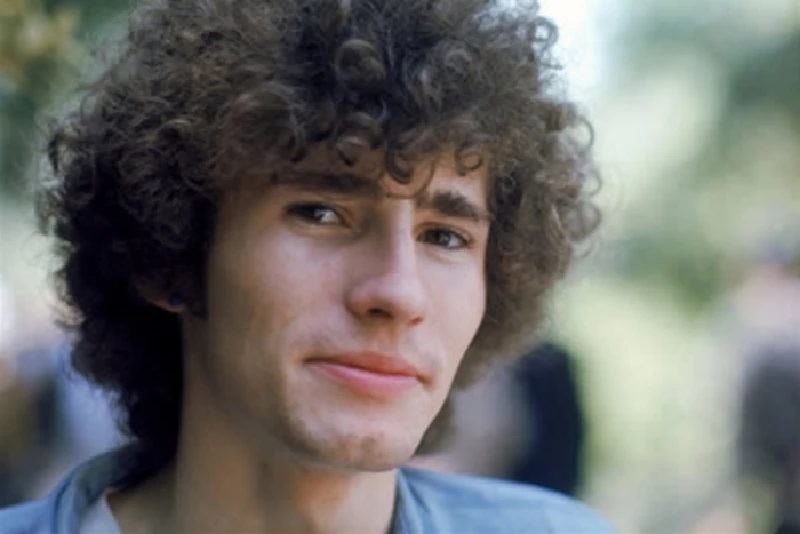
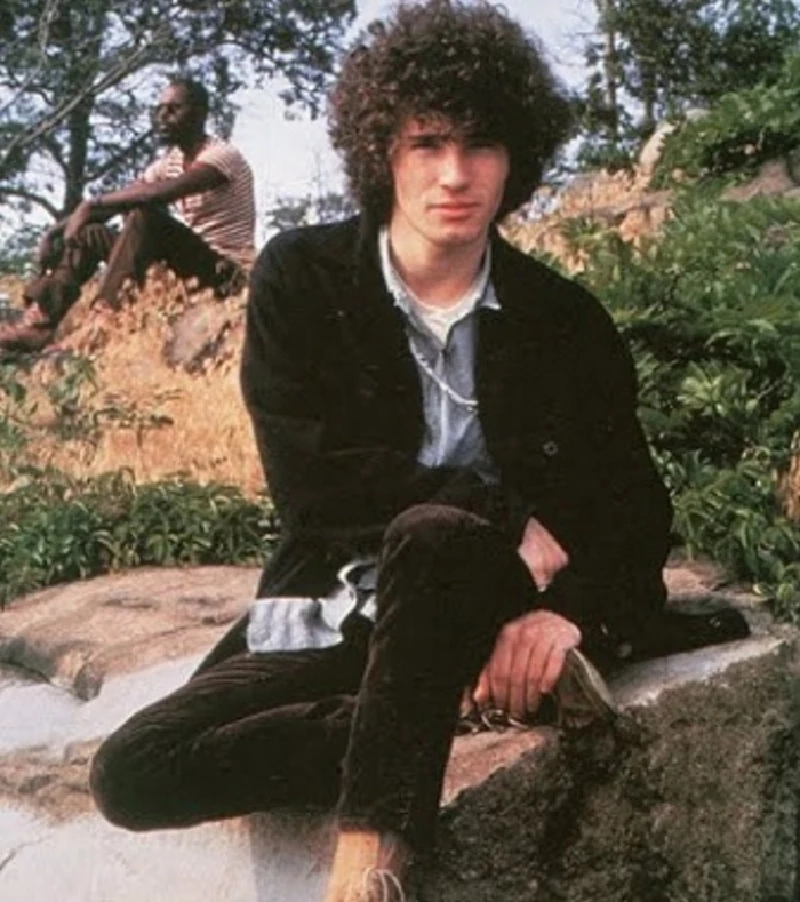
profiles |
|
My Fleeting House (2007) |
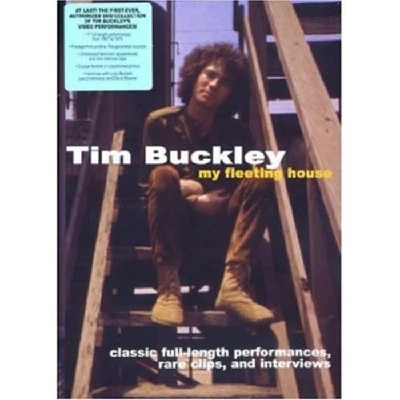
|
| 'My Fleeting House' compiles together on DVD |all the performances 70's icon and singer-songwriter Tim Buckley made for television. Chris O' Toole finds it both limiting and fascinating at the same time |
features |
|
The Image That Made Me Weep (2020) |
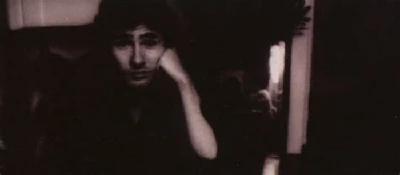
|
| In 'The Image That Made Me Weep' Adrian Janes examines the melancholic back cover photograph of Tim Buckley's 1974 last studio album, ‘Look at the Fool’. |
| Ten Songs That Made Me Love... (2014) |
| Profile (2005) |
most viewed articles
current edition
Carl Ewens - David Bowie 1964 to 1982 On Track: Every Album, Every SongArmory Show - Interview with Richard Jobson
John McKay - Interview
Colin Blunstone - Thalia Hall, Chicago, 16/7/2025
Billie Eilish - O2 Arena, London, 10/7/2025
Bathers - Photoscapes 1
Loft - Interview
Visor Fest - Valencia, Spain, 26/9/2025...27/9/2025
Sir Tim Rice - Interview
Robert Forster - Interview
previous editions
Manic Street Preachers - (Gig of a Lifetime) Millennium Stadium, Cardiff, December 1999Heavenly - P.U.N.K. Girl EP
Beautiful South - Ten Songs That Made Me Love...
Peter Perrett - In Dreams Begin Responsibilities Interview Part One
Boomtown Rats - Ten Songs That Made Me Love....
Oasis - Oasis, Earl's Court, London, 1995
Coldplay - Wembley Arena. London, 16/8/2022
Trudie Myerscough-Harris - Interview
Prolapse - Interview
Pixies - Ten Songs That Made Me Love...
most viewed reviews
current edition
Davey Woodward - Mumbo in the JumboSick Man of Europe - The Sick Man of Europe
Lucy Spraggan - Other Sides of the Moon
Phew, Erika Kobayashi,, Dieter Moebius - Radium Girls
Suzanne Vega - Flying With Angels
Bush - I Beat Loneliness
Amy Macdonald - Is This What You've Been Waiting For?
Alice Cooper - The Revenge of Alice Cooper
Blueboy - 2
Cynthia Erivo - I Forgive You
Pennyblackmusic Regular Contributors
Adrian Janes
Amanda J. Window
Andrew Twambley
Anthony Dhanendran
Benjamin Howarth
Cila Warncke
Daniel Cressey
Darren Aston
Dastardly
Dave Goodwin
Denzil Watson
Dominic B. Simpson
Eoghan Lyng
Fiona Hutchings
Harry Sherriff
Helen Tipping
Jamie Rowland
John Clarkson
Julie Cruickshank
Kimberly Bright
Lisa Torem
Maarten Schiethart